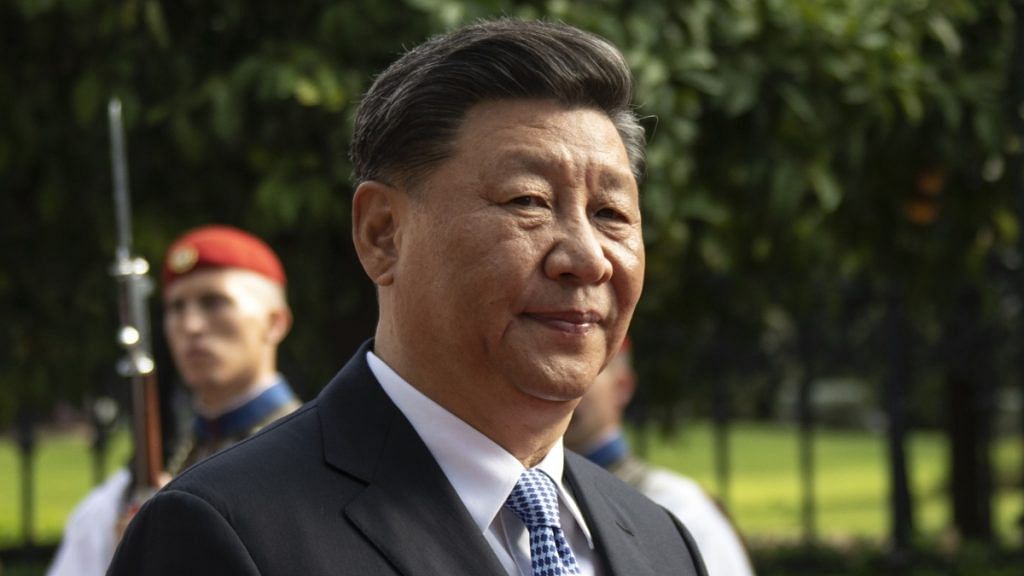China’s assertiveness is becoming increasingly brazen. This week, the Chinese Ambassador Cheng Jingye in Canberra threatened economic consequences if Australia continues to demand for an international investigation into the origins of the Covid-19 outbreak. The Australian Foreign Minister Marise Payne rejected the threat, calling it “economic coercion”, even as she reiterated Australia’s call for the investigation.
China’s tone-deaf behaviour in the middle of a global pandemic — one whose spread is clearly the consequence of, at the least, Chinese mismanagement — may be a blessing in disguise, as an Australian commentator noted, because it “unmasks the (Chinese) regime’s true face”.
Also Read: US state Missouri sues China for ‘campaign of deceit’ over extent of Covid outbreak
Aggression in South China Sea
China has been even more active in the South China Sea, sinking a Vietnamese fishing boat, setting up new administrative districts in the disputed Paracel and Spratly islands, intruding into Malaysia’s Exclusive Economic Zone, and conducting aggressive military exercises near Taiwan. India is unlikely to be immune from China’s belligerence, making it imperative that the Narendra Modi government cooperates with others to push back against such tactics.
The growing push back is coming from both the region and from farther afield. In the region, not only has Vietnam protested against the sinking of its fishing vessels, it has also accused Beijing of ‘seriously violating’ its sovereignty in the South China Sea with its declaration of incorporating Paracel and Spratly islands into new districts.
Surprisingly, given their previous lack of unity on the issue, others in the region have also joined in. President of Philippines Rodrigo Duterte, who has tried hard to appease Beijing, has also criticized China’s actions in the South China Sea.
Globally, China is facing the wrath of both the US and Australia. The two countries have sent warships to the region to support Malaysia. Even Sweden, not the one known to pick fights, has closed down the Chinese government sponsored Confucius Institutes — the latest in a series of tit-for-tat actions between the two countries.
China’s behaviour after the coronavirus outbreak raises two issues.
Also Read: Pompeo says China responsible for Covid-19 outbreak, must detail origin of virus
Beijing’s ‘warm up’
One is the question of Beijing potentially miscalculating its way into a serious crisis with either the US or one of its neighbours.
In a provocative essay published last year, Derek Grossman, a senior researcher at RAND — a leading US think-tank — had suggested that China might pick a fight with Vietnam as a “warm up”. Though the author suggests that India will not be a target for such a “warm up”, the Doklam experience still continues to rankle Beijing.
It was even referenced in the letter that Chinese dissident Xu Zhiyong wrote ridiculing President Xi.
China’s repeated miscalculations are a problem. While China’s power has grown tremendously, the prudence that marked China under Deng Xiaoping and his successors has withered under Xi Jinping. Wars often begin through miscalculations, and China’s apparent overconfidence portends danger ahead.
Also Read: After pandemic, Europe and China are set for a damaging diplomatic rift
Measures to control China
The second question is what measures can be taken by China’s neighbours and the rest of the world to manage the country’s aggression. There is some good news here because China’s relentless aggressiveness is uniting the region like never before.
Although, we are far from any form of a regional military alliance, China’s behaviour is beginning to create a common understanding about the threat that it poses, which is the necessary first step for united action against the country. Until now, countries in the region appeared confident that they could manage China on their own. This was because they were worried about the reaction they would receive, if they made any moves to oppose China. But it is increasingly becoming clear to these countries that China appears to be driven by its internal demons, therefore all the efforts to pacify it are going to fail.
Asia is unipolar: China’s power cannot be matched by any combination of regional powers, let alone by anyone on their own. This simple reality means that the US has to be a part of any effort to counter China’s reckless behaviour.
But even with US support, there is not yet any appetite for a military pushback against China. There might be no reason to do that either, at least not just yet. The growing number of minilateral groups of countries suggest that there are other options. These groups — including the Quad and now the Quad plus along with India-France-Australia group — can weave a web of like-minded countries that can push back against China’s intimidation. For example, they can act together to limit China’s efforts to control multilateral agencies, but even more importantly, against its use of economic coercion.
China has been able to employ such tactics against countries like South Korea or Norway only because other countries did not support them because they were fearful of risking their economic relations with China. Now that such Chinese intimidation tactics are spreading, it is in everybody’s interest not to become the next victim or to suffer alone.
India has not been immune from coercive threats, as in the case of Huawei 5G competition. The country will suffer even more if China’s intimidation tactics succeed. New Delhi needs to act, with others, to ensure that China doesn’t.
The author is a professor in International Politics at Jawaharlal Nehru University (JNU), New Delhi. Views are personal.
